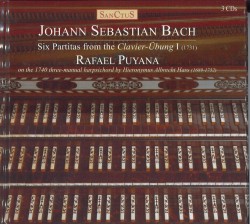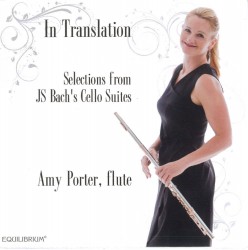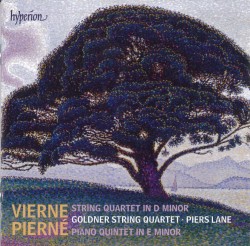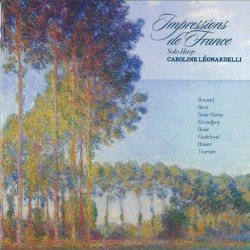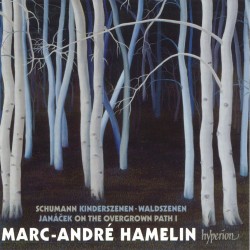Violinist Lynn Kuo and pianist Marianna Humetska have been playing as a duo since 2006, but Love: Innocence, Passion, Obsession is their self-issued debut CD (LKCD0001
lynnkuo.com). It’s promoted as “a musical exploration of love, from the sparks of passion to the throes of jealousy and heartbreak,” but I’m not sure if the recital program really lives up to it.
The main work on the CD is the always-popular César Franck Sonata in A Major, which is given a solid performance highlighted by Humetska’s expansive and passionate keyboard work. Astor Piazzolla’s Milonga en re is a short, haunting piece given a sensitive, tender reading here. Michael Pepa’s Fantaisie bohémienne lives up to its title, giving Kuo the opportunity to shine and to display a wide range of technical skills in a bravura, almost improvisatory gypsy-flavoured fantasia. Nino Rota’s Improvviso en re minore is another short but passionate offering.
The final track is the Concert Fantasy on Themes from Gershwin’s Porgy and Bess, Op.19 by the Russian violin virtuoso Igor Frolov, who died just last summer. It’s a colourful portrait that captures the range and passion of one of Gershwin’s most popular works, and gives Humetska in particular the chance once again to display the full power of her technical and interpretive skills. Recorded in CBC Studio 211 in Toronto, the balance and sound quality are excellent.
Unfortunately, there is no accompanying booklet: full notes are promised by visiting Kuo’s web site, but at the moment there’s nothing there about the works on the CD.
The Montreal-born violinist Frédéric Bednarz is joined by his wife, pianist Natsuki Hiratsuka, in a CD of Sonatas for violin and piano by Szymanowski and Shostakovich (Metis Islands Music MIM-0004 metis-islands.com). Karol Szymanowski’s Sonata in D Minor, Op.9, is an early work from 1904; it’s a traditional late-Romantic piece with more than a passing reference to the Franck sonata, and is given a clear, thoughtful reading by both players.
The Shostakovich Sonata Op.134 is, by contrast, a late work, written in 1968 for David Oistrakh’s 60th birthday; as with so much late Shostakovich, it never seems to shake that all-pervasive sense of nervous apprehension, desolation and loss of hope. Again, the playing is sensitive and clear, with a particularly effective Largo, the third and final movement which is almost as long as the first two movements put together. There could perhaps be a bit bigger emotional range in places – maybe more of a raw edge at times – but these are beautifully balanced and satisfying performances.
The CD was recorded in McGill University’s Music Multimedia Room in Montreal, where Bednarz is a member of the Molinari String Quartet, the quartet in residence at the Montreal Conservatory.
The English violinist Sara Trickey is joined by her regular duo partner Daniel Tong in an outstanding recital of Schubert Sonatinas for violin and piano on her latest Champs Hill CD (CHRCD080). The Callino Quartet accompanies her in the Rondo in A Major for Violin and Strings, D438.
The sonatinas – D Major D384, A Minor D385 and G Minor D408 – are actually the first three of Schubert’s violin sonatas, and were written in early 1816 when he was 19. They weren’t published until 1836, eight years after Schubert’s death, when Anton Diabelli, who had purchased a large part of Schubert’s musical estate from Schubert’s brother Ferdinand, issued them as Sonatinas by Diabelli, their true identity remaining unknown for many years.
Trickey has known these works for some time – she says they have been “under my skin” ever since she first encountered them at the age of 14 – and it shows. Her foreword to the booklet makes clear that she understands exactly what these sonatas are: she refers to “the joy mixed with frailty, the poignancy and darkness which never quite subsumes a sense of hope” and to the “passing hints of almost everything that is to come.”
Trickey has a beautiful tone; it’s sweet, clear and pure, but never lacks a steely underlying strength when needed. Tong is an equal partner in every respect.
The Rondo, a more challenging work from 1816 presented here in its original form with string quartet, rounds out a simply stunning CD.
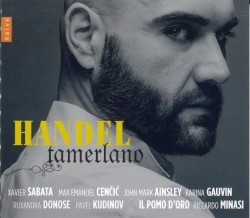 Handel – Tamerlano
Handel – Tamerlano

